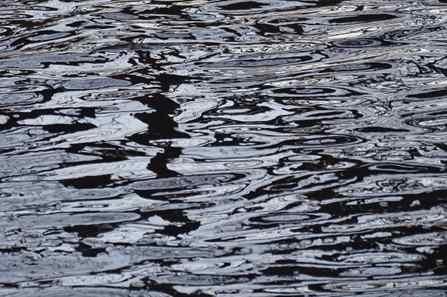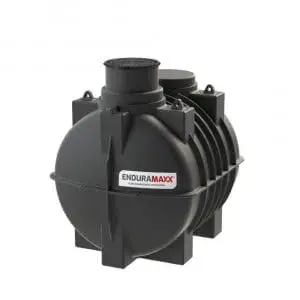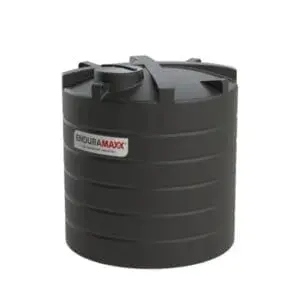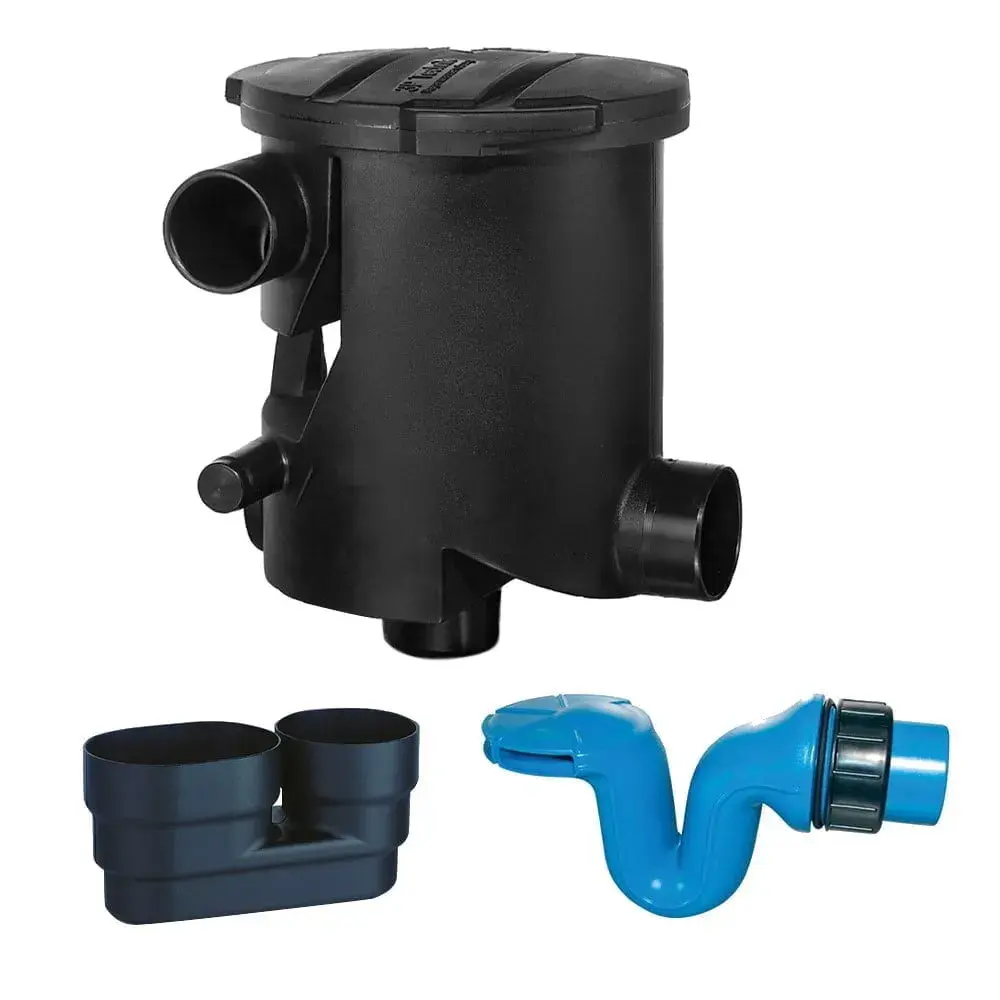
Rainwater harvesting is becoming something of a buzzword among businesses and homeowners alike, but exactly what it is and how it works can sometimes seem like a mystery. In this article, we take a look into this eco-friendly, money-saving technology.
What Is Rainwater Harvesting?
Rainwater harvesting is a way of collecting, storing, and using rainwater for a variety of applications, from agricultural irrigation to industrial cooling, to drinking water for animals and people. The idea is ancient, but the technique has been revolutionised by today’s sustainable technology – improving the quality and lowering the cost of repurposing rainwater. Rainwater is collected and filtered so that it is safe to use around the farm, office, factory, or construction site, reducing utilities costs for business owners and improving their sustainability profile.
Can I Drink Harvested Rainwater?
With the right filters, harvested rainwater is incredibly clean, and can be conditioned to be safe to drink for people and/or livestock. However, there are strict rules and regulations that define ‘drinking water’. Water is an organic substance that contains many types of harmful bacteria, some of which enters it when rainwater runs off a field or surface. For instance, if rainwater washes over bird droppings, it can pick up over 60 diseases. Precipitation can also absorb atmospheric pollution from built-up areas and air traffic – ‘acid rain’ being the most extreme example. Therefore, no water should be consumed unless it has been treated sufficiently to remove contaminants. Strategies are available to treat harvested rainwater, so ask an expert if you plan to do this.
Can I Use Harvested Rainwater In The Bathroom?
The bathroom is one of the best places to optimise a rainwater harvesting system installed in a commercial or industrial premises, or on-site on a building site, quarry, or farm. The water can be used to fill the toilet cistern and is also usually safe for showering after basic filtration. Rainwater has an added benefit for bathrooms as it is free from calcium. Calcium causes build-ups of limescale and the consequent cleaning and maintenance headaches that accompany it, so this option can make bathrooms safer while saving money on commercial cleaning products.
Can I Use Harvested Rainwater In The Kitchen?
An average commercial washing machine uses a staggering 19 gallons of water per load, making laundry (alongside flushing toilets) one of the major drains on mains water supplies. Meticulously cleaned and filtered rainwater can shoulder the burden by ensuring the washing emerges just as fresh as if the mains supply were used. Additionally, rainwater can feed dishwashers in office and commercial kitchens, and can even be used to wash industrial machinery in workshops and factories.
Can Harvested Rainwater Save Me Money?
We can never guarantee what the weather is going to be like, but if there’s rain, there’s free water. Rainwater harvesting systems work on a dual pump design, so it will automatically switch between mains water and harvested water depending upon how full the tank is. Most businesses see a substantial reduction in their water bills after implementing a rain harvesting system, although this varies on the geographical location and water usage. There are wider community benefits, too, such as preventing flooding (an increasing winter hazard for businesses in many parts of the UK) while preserving the earth’s ecosystem.
What Next?
If you’re interested in saving money and making the most of Britain’s abundant year-round rainwater supply, it’s important to have the right system in place. When it comes to water, quality really matters, so for more information, contact Enduramaxx today on 01778 562810.
iImage Source: Unsplash
Posts By Topics
- Blog (303)
- Chemical Storage Tanks (118)
- Chemical Dosing Tanks (114)
- Chemical Tanks (114)
- Water Tanks (58)
- Rainwater Harvesting Tanks (43)
- Vertical Rainwater Tanks (31)
- Vertical Storage Tanks (31)
- Cone Bottom Tanks (19)
- Conical Cone Tanks (18)
- Rainwater Harvesting (17)
- Water Bowsers (15)
- Horizontal Tanks (14)
- Potable Water Tanks (13)
- Farming (9)
- Case Studies (8)
- Industrial Storage Tanks (7)
- Liquid Fertilser Storage Tanks (6)
- WRAS Approved Potable Tanks (6)
- Wine and Beer Production (6)
- Horizontal Transport Tanks (5)
- Microbrewery (5)
- Rainwater (5)
- Category 5 Break Tanks (4)
- Cider Production (4)
- Mixer Tanks (4)
- Molasses Tanks (4)
- Polyethylene tanks (4)
- Rainwater Filter Kits (4)
- SPECIALIST & BESPOKE TANKS (4)
- Bunded Tanks (3)
- Slimline Tanks (3)
- WRAS Approved (3)
- Clarification Tanks (2)
- Crosslinked Polymer Tanks (XLPE) (2)
- Fertiliser Tanks (2)
- Sump Tanks (2)
- Tank Installation (2)
- Water Butt (2)
- underground water tanks (2)
- ACCESSORIES & FITTINGS (1)
- ATV & UTV SPRAYING UNITS (1)
- Above Ground Effluent Tanks (1)
- Bespoke Tank Frames (1)
- Category 5 Turret (1)
- Caustic Soda Tanks (1)
- Closed Top Bunded Tanks (1)
- Craft beer (1)
- Effluent Tanks (1)
- Enduramaxx (1)
- Ferric Chloride Tanks (1)
- Fire Safety Regulations (1)
- Fire Sprinkler Water Storage Tanks (1)
- Industrial Water Tank (1)
- Open Top Bunded Tanks (1)
- Open Top Cone Tanks (1)
- Open Top Vertical Tanks (1)
- Polyethylene Potable Water Tanks (1)
- Polyvinylidene Fluoride (PVDF) Tanks (1)
- Polyvinylidene Fluoride Tanks (PVDF) (1)
- Pressure Washers (1)
- Pro Series Spot Sprayers (1)
- RWH (1)
- Sodium Hydroxide Storage Tanks (1)
- Sprayer Fill-up Tanks (1)
- Uncategorised (1)
- liquid fertiliser tank (1)
Sign up to the newsletter
enduramaxx.marketing
Related Posts
Benefits of Feeding Soybean Oil to Livestock | Enduramaxx
Soybeans, also known as Soya Beans or Glycine soja, were first grown in China. They were brought to...
Essential Features of Reliable Chemical Dosing Tanks
Chemical dosing tanks are an important part of many water storage and treatment systems. For water...
Ferric Chloride Storage Solutions for Containerised Systems | Enduramaxx - Manufacturers of Polyethylene Tanks
Ferric Chloride Storage Solutions for Containerised Systems, water purification and water treatment...
Related Products
From £1,080.00 inc. VAT
£900.00 exc. VAT
From £1,344.00 inc. VAT
£1,120.00 exc. VAT
From £768.00 inc. VAT
£640.00 exc. VAT
£480.00 inc. VAT
£400.00 exc. VAT






